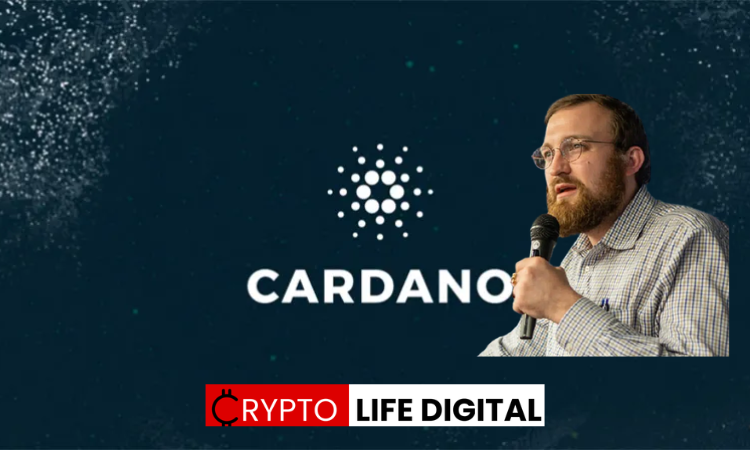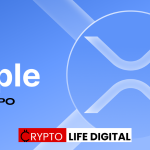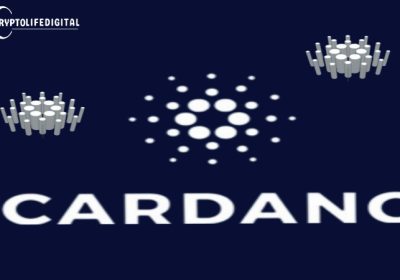Charles Hoskinson Weighs In on ETHGate Controversy, Challenges Corruption Claims, and Highlights Need for Transparency in SEC

Charles Hoskinson, founder of Cardano and co-founder of Ethereum, recently shared his insights on the ongoing ETHGate controversy during a recent Ask-Me-Anything (AMA) session. In doing so, he challenged the prevailing claims of corruption surrounding the Ethereum project and highlighted the need for transparency in the regulatory landscape. Hoskinson’s analysis provides a thought-provoking perspective on the cryptocurrency industry’s relationship with regulatory agencies, particularly the U.S. Securities and Exchange Commission (SEC).
Read Also: Opportunity for Crypto Community to Invest in Ripple’s Pre-IPO Shares Reopens on Linqto Platform
Charles says the #HinmanEmails did not prove corruption, just favoritism.#ETHGate @StevenNerayoff pic.twitter.com/93WfI5u6wP
— wEeZiE {X}💭John Deaton 4 Senate (@NerdNationUnbox) October 10, 2023
The ETHGate controversy centres around allegations that the Ethereum team may have bribed former SEC official William Hinman to secure favourable treatment for Ethereum (ETH). The controversy was fueled by documents released by Ripple Labs in June, which revealed that Hinman had met with Vitalik Buterin, Ethereum’s co-founder, just one week before declaring that both Bitcoin (BTC) and Ethereum (ETH) were not securities.
Read Also: Shibacals Announces Exciting Updates for Shiba Inu Community
Hoskinson’s perspective challenges the corruption claims, suggesting that the available evidence points more towards favouritism rather than bribery. He stressed the distinction between favouritism and corruption, with the latter involving attempts to influence government officials through monetary means or other inducements. While it’s not uncommon for businesses to shape regulations in their favour, Hoskinson underscored the importance of transparency and avoiding conflicts of interest in these efforts.
Key Implications of Hoskinson’s Analysis
- Potential Bias in SEC Regulation: Hoskinson’s perspective raises concerns about potential bias in the regulation of cryptocurrencies by the SEC. If favouritism towards Ethereum is confirmed, it could indicate unequal treatment of cryptocurrency projects, potentially affecting the overall fairness of regulatory actions.
- Transparency in Decision-Making: Hoskinson’s analysis highlights the need for greater transparency in the SEC’s decision-making process. A clear understanding of the criteria and motivations behind regulatory actions is essential for ensuring the integrity and accountability of regulatory agencies.
- Ethical Conduct and Conflict of Interest: The controversy underscores the significance of ethical conduct and conflict of interest rules within government agencies. Upholding ethical standards is essential for maintaining public trust and ensuring objective decision-making processes.
- Impact on the XRP Community: The potential confirmation of favouritism towards Ethereum could have implications for the XRP community, particularly regarding the ongoing lawsuit between Ripple Labs and the SEC. Unjust targeting of XRP by the SEC could be a concern for the broader cryptocurrency industry.
- Ongoing Evolution of Cryptocurrency Regulation: The analysis by Hoskinson comes at a time when cryptocurrency regulation is still in its nascent stages. As the industry continues to grow and evolve, open and honest discussions regarding effective regulatory frameworks become increasingly crucial.
Hoskinson’s unique perspective on the ETHGate controversy, stemming from his experience as a co-founder of Ethereum, offers valuable insights for consideration. While the complexity of the controversy means that a definitive conclusion may remain elusive, his analysis underscores the distinction between favouritism and corruption in the cryptocurrency industry’s interaction with regulatory agencies.
The cryptocurrency community and regulators alike may need to take these insights into account as they navigate the evolving landscape of digital asset regulation, aiming to strike a balance between innovation and responsible oversight.
Follow us on Twitter, Facebook, Telegram, and Google News.

Meet Daniel Abang: Crypto guru, content creator, and analyst. With a deep understanding of blockchain, he simplifies complex concepts, guiding audiences through the ever-changing crypto landscape. Trusted for his insightful analysis, Daniel is the go-to source for staying informed and empowered in the world of cryptocurrency.









